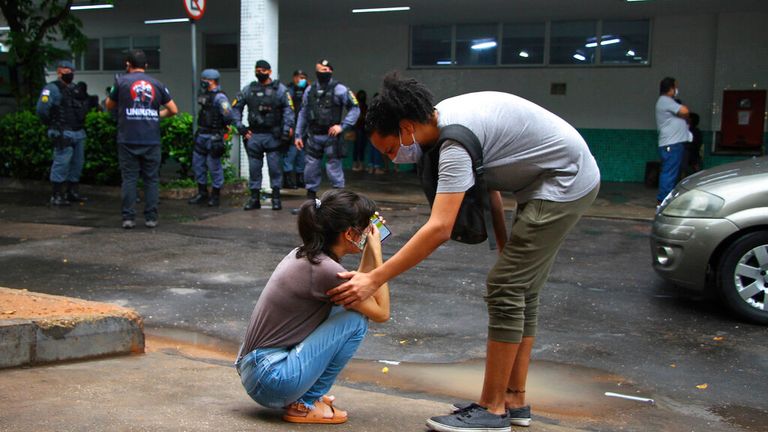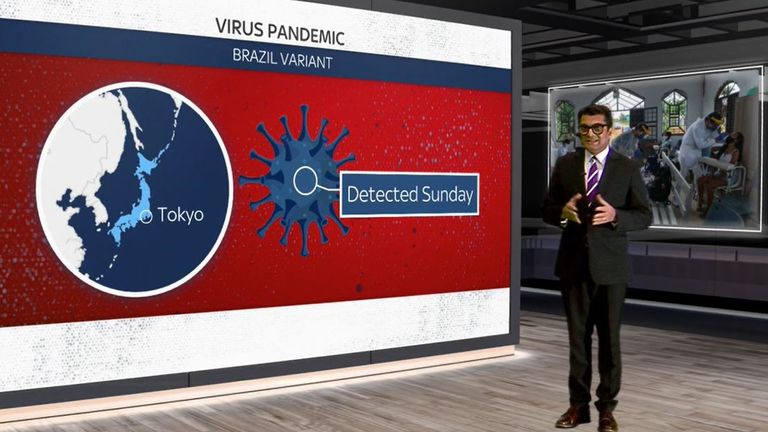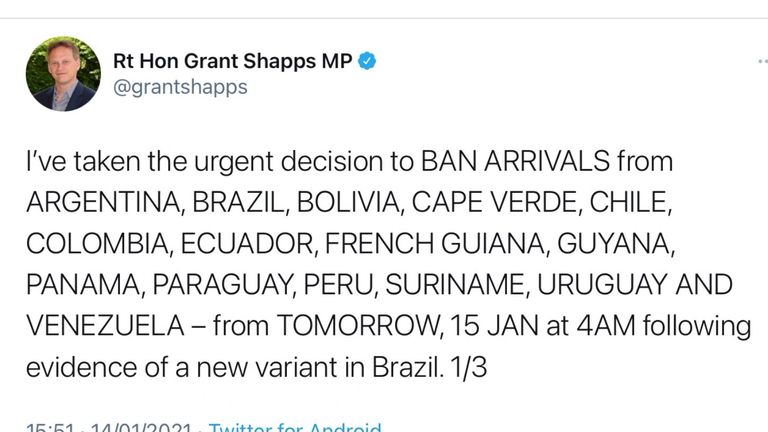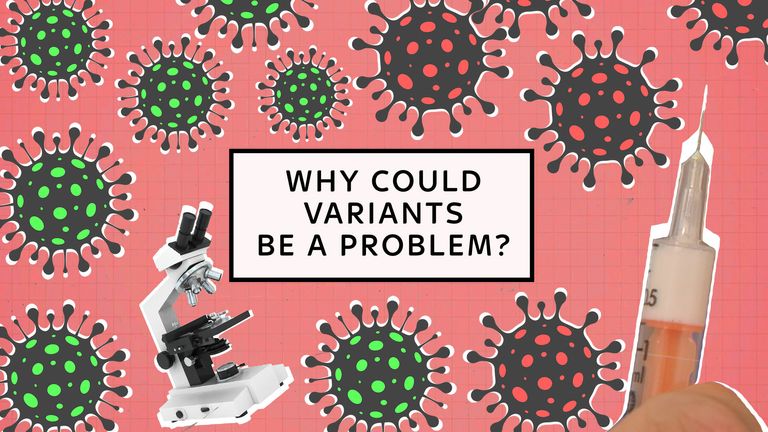COVID-19: Virologist says Brazilian coronavirus variant detected in UK is not the one 'of concern'
A new variant has seen a rise in coronavirus cases in Brazil, with one city running out of oxygen.
Friday 15 January 2021 15:14, UK
A leading virologist who said one of two Brazilian COVID-19 variants had been detected in the UK has now said the one picked up in Britain is not the one "of concern".
Speaking earlier at the launch of a new variant research group, Professor Wendy Barclay said: "There are two different types of Brazilian variant and one of them has been detected in the UK."
Prof Barclay, head of the G2P-UK National Virology Consortium - a panel of experts set up specifically to look at new coronavirus variants - said it was probably introduced "some time ago".
She said: "In the databases, if you search the sequences, you will see that there is some evidence for variants from around the world, and, I believe, including the Brazilian one, which probably was introduced some time ago.
"And that will be being traced very carefully."
Prof Barclay, chair of influenza virology at Imperial College London, said one of the two Brazil variants was picked up in Japan from some Japanese people who had travelled from Brazil, and the other is "more prevalent in Brazil".
She has since released a statement saying: "The new Brazilian variant of concern, that was picked up in travellers going to Japan, has NOT been detected in the UK. Other variants that may have originated from Brazil have been previously found."
During the briefing, she warned that studies from other groups, and G2P-UK, are suggesting the Brazil variants "might impact the way that some people's antibodies can see the virus", so there may be a risk of reinfection which would have "big implications".
Further research is needed to clarify that, she added.
Earlier, Transport Secretary Grant Shapps told Sky News he first heard of the Brazil variant on Sunday and later told the BBC he was "not aware" of any cases of it in the UK.
All viruses mutate as they advance, but there are some COVID-19 mutations that are causing concern. They are:
• The UK variant first detected in Kent in September
• The South African variant originally detected in early October
• The Brazil variant, first detected in December
A ban on travellers entering the UK from across South America, the Central American state of Panama, Portugal - due to its strong travel links with Brazil - and the former Portuguese colony of Cape Verde came into force at 4am today.
Scientists analysing the new Brazilian variants believe the mutations they share with the new South African strain are associated with a rapid increase in cases in locations which have seen large COVID-19 outbreaks.
The new, more transmissible, variant in Brazil has seen a mass transfer of COVID-19 patients out of Manaus, the Amazon's largest city, as it struggles with a shortage of oxygen tanks.
Videos of the situation spread across social media, with distraught relatives of COVID-19 patients in Manaus asking people to buy oxygen for them.
Official data shows the city's 14-day death figures are approaching the peak of last year's first wave, as a paper published this week indicated the new strain had been circulating in the city of two million people since mid-December.
The G2P-UK group, which was launched today, is made up of scientists from a variety of specialisms who will assess new COVID-19 variants for whether they will be more transmissible or resistant to current vaccines.
They will aim to give those scientific assessments to the UK government before any new variants spread widely so policies can be amended to prevent that.






